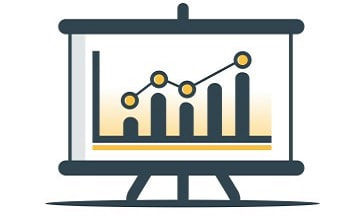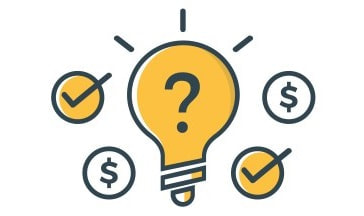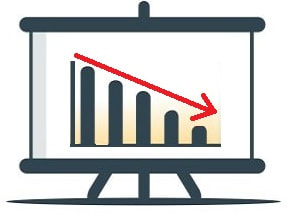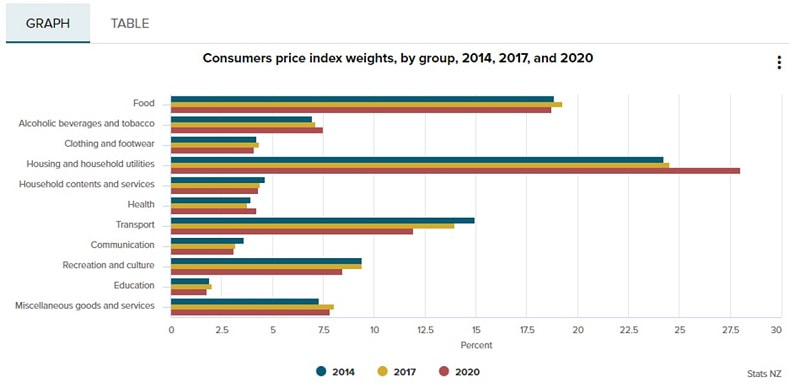The Impacts of Inflation in New Zealand
Inflation has recently increased due to the cost of petrol and the extra costs of transporting goods to New Zealand - Our guide explains what you need to know about what comes next
Updated 3 January 2024
Summary
To help explain inflation and how you can best understand it and prepare for it, our guide covers:
Know This First: What is the Reserve Bank of New Zealand?
Must-Read Related Guides:
Summary
- The cost of living has been a point of uncertainty for many New Zealanders. With inflation consistently in the headlines, the impact of inflation on every New Zealander's daily lives is a big concern.
- Inflation is described as the sustained rise in the price of goods and services over time. Inflation has generally averaged 1-3% per year in New Zealand. Generally, inflation measures the upward rise in prices over time for a basket of items that most New Zealanders will purchase in their daily spending habits.
- The Consumer Price Index (CPI) is the most popular and widely known inflation indicator. The CPI pulls data from various costs, such as housing, transportation and food. Most costs, such as petrol and diesel, are at all-time high percentage increases.
- Additionally, inflation expectations are still extremely high, and the current labour market is extremely tight, with unemployment at record lows.
- Transport prices are a massive driver of inflation. As fuel prices increase, almost all New Zealanders feel the sting of increased transport costs, whether driving to work, taking public transport or going on a road trip.
- Know This: As inflation has recently increased due to the cost of petrol, this has led to extra costs of transporting goods to New Zealand. This has built-in cost pressures as people look for pay rises to keep up with inflation. However, as unemployment is very low, we will inevitably see further inflation from pay rises. As a result, there is a danger that inflation becomes 'expected'. The only way to reduce inflation is for the Reserve Bank to keep increasing interest rates to increase the cost of credit and arguably engineer a recession which reduces demand and increases unemployment.
To help explain inflation and how you can best understand it and prepare for it, our guide covers:
- What are the Main Impacts of Inflation on New Zealanders?
- What are the Main Impacts of Inflation on Businesses and the Economy?
- What are the Unexpected Benefits of Inflation?
- Frequently Asked Questions
Know This First: What is the Reserve Bank of New Zealand?
- The Reserve Bank of New Zealand (AKA the RBNZ) is the main government body looking at controlling inflation. The RBNZ's broad objective is to get inflation in the 1 - 3% range over the long run (with an ideal target of around 2%).
- At the same time, the RBNZ's job is to try to achieve this whilst maintaining a healthy employment rate (making sure New Zealanders that want to work can find jobs) and as strong an economy as possible.
- The RBNZ targets a modest inflation level because low inflation levels incentivise businesses to create and are more productive, give a margin of error in case inflation overshoots or undershoots and intends to avoid deflation, which can have an extremely significant impact on spending.
Must-Read Related Guides:
What are the Main Impacts of Inflation on New Zealanders?
1. Inflation Erodes Purchasing Power
- The most significant impact of inflation is that it hits purchasing power. A steady increase in cost over time means the same quantity of food and fuel purchased costs increasingly more. The higher the inflation rate, the more expensive the same quantity of these goods is.
- The higher inflation is, the more it puts pressure on the cost of living. In September 2023, inflation hit 5.6% for a generic basket of goods that make up the Consumer Price Index (CPI) in New Zealand. As a result, inflation acts as a tax on consumers, eroding purchasing power and making it more difficult for families to make ends meet.
2. Inflation Hurts the Less Wealthy Significantly More than the Wealthy
- Inflation is particularly painful for lower-income households, where the percentage of post-tax disposable income spent on essentials like food and gas continues to increase while wages typically stay the same. As a result, higher essentials costs mean less cash left over at the end of the month while continuing to buy the same groceries.
- Additionally, lower-income households have significantly fewer savings and investments than higher-income households, meaning these households have less cushion against rising costs.
3. Inflation Impacts Kiwisaver and Investment Portfolios (Bonds and Growth Stocks in Particular)
- Typically, bonds are lower-risk investments that generate stable earnings at a constant rate. However, inflation, particularly excessive inflation, impairs the returns of bonds by reducing the purchasing power of that bond income. As interest costs become larger in response to rising inflation, so does the yield on newly issued bonds. As bond yields rise, bond prices fall.
- In contrast, there is much less consensus on whether excessive inflation hurts or helps share market prices. However, growth shares, which tend to be more richly valued, are significantly impacted by inflation, given that most expected growth is generated in the future. High inflation leads to higher interest rates (to reduce demand and borrowing), which makes the value of future growth much less. As a result, shares have traditionally lagged in periods of high inflation.
4. Inflation’s Negative Impact on Savers and Retirees
- New Zealanders in their retirement phase or with substantial investments in term deposits/savings accounts are disproportionately impacted by inflation.
- For example, assume that you have $1,000, and it costs $1,000 to buy an iPhone. If you were to put the $1,000 into a term deposit for a 3% return, but inflation is 10%, you would get $30 as interest at the end of the year. However, the cost of the iPhone would have gone up to $1,100. In this scenario, you've made 3% of your money, but in real terms, you've lost purchasing power.
- This scenario is even worse for retirees, who likely won't have any additional income from a full-time job. As retirees are typically more defensive in their investments, rising inflation puts pressure on their weekly budgets. As a result, retirees may need to dip into their principal savings to make ends meet, reducing the size of their nest egg every year. A shrinking nest egg is the worst possible scenario for retirees.
What are the Main Impacts of Inflation on Businesses and the Economy?
1. High Inflation Leads to Higher Inflation
If inflation was 3% last year and is 3% this year, businesses, employees, and consumers get comfortable that inflation will continue to be at 3% and can adjust their spending and budgets to account for this steady increase in price/cost.
However, when inflation rises quickly and stays elevated, expectations of future inflation from consumers and businesses start to change. People start to expect the cost of things to go up rapidly. As these expectations rise, employees begin asking for salary increases and change their spending habits. Employers will pass on these salary increases through increased prices on the goods they sell, which impacts consumer spending. The cycle of increased costs leading to higher wages is called the wage-price spiral.
In the worst-case scenario, excessive inflation can lead to hyperinflation, where the prices of everything rise astronomically, incentivising people to spend all their money now in fear that the cash they currently hold will become worthless by next week. Examples of hyperinflation include Germany in the 1920s and Zimbabwe in the late 2000s.
However, when inflation rises quickly and stays elevated, expectations of future inflation from consumers and businesses start to change. People start to expect the cost of things to go up rapidly. As these expectations rise, employees begin asking for salary increases and change their spending habits. Employers will pass on these salary increases through increased prices on the goods they sell, which impacts consumer spending. The cycle of increased costs leading to higher wages is called the wage-price spiral.
In the worst-case scenario, excessive inflation can lead to hyperinflation, where the prices of everything rise astronomically, incentivising people to spend all their money now in fear that the cash they currently hold will become worthless by next week. Examples of hyperinflation include Germany in the 1920s and Zimbabwe in the late 2000s.
2. Inflation Forces the Reserve Bank of New Zealand to Raise Interest Rates
As detailed above, governments and central banks are incentivised to keep inflation reasonable. Over the previous century, the main way this has been done is through economic policy and changing interest rates. When inflation threatens to go above the RBNZ's target of ~2%, they can raise interest rates (also known as the official cash rate, or OCR for short), increasing the cost of borrowing throughout New Zealand through constraining the supply of money.
As a result, interest rates and inflation tend to move in the same direction. As inflation rises, central banks need to raise interest rates and increase borrowing costs to reduce spending. As interest rates rise, debts like mortgages or car payments tend to increase, and the cost of expanding for businesses gets a little more expensive. Additionally, a higher interest rate means a more attractive yield for term deposits and savings accounts, reducing the incentive to spend. On the other hand, as inflation recedes and consumer spending slows, the RBNZ typically lowers the interest rate to encourage borrowing and spending.
As a result, interest rates and inflation tend to move in the same direction. As inflation rises, central banks need to raise interest rates and increase borrowing costs to reduce spending. As interest rates rise, debts like mortgages or car payments tend to increase, and the cost of expanding for businesses gets a little more expensive. Additionally, a higher interest rate means a more attractive yield for term deposits and savings accounts, reducing the incentive to spend. On the other hand, as inflation recedes and consumer spending slows, the RBNZ typically lowers the interest rate to encourage borrowing and spending.
3. Inflation Can Cause a Recession in the Medium to Long Term
The RBNZ has a difficult job of trying to balance inflation and unemployment. As inflation rises, the RBNZ can either let inflation rise, hurting lower-income households or increase interest rates and slowing consumer and business spending (leading to layoffs and rising unemployment). Most of the time, the hurt on lower-income households is unacceptable, and the RBNZ chooses to put the New Zealand economy into a recession by raising interest rates. Raising interest rates can lead to painful periods where a large percentage of the population is unemployed and struggles to find work.
What are the Unexpected Benefits of Inflation?
1. Inflation Improves Growth and Employment in the Short Term
- Because inflation discourages saving (as waiting to purchase something will make it more expensive), it encourages consumers to go and spend money rather than save it for a rainy day. In the short term, inflation can lead to stronger monetary growth.
- As a result, unemployment typically declines as inflation climbs. Inflation can increase demand for a short period while decreasing inflation-adjusted labour costs, fueling job gains.
- However, consistently high inflation eventually starts to hurt consumers and businesses as they exhaust their savings. As a result, inflation generally leads to a recession or underperformance in the medium to long term.
2. Inflation Lowers the Cost to Pay Debt off
- Inflation helps borrowers pay off their debts by allowing them to make future repayments with inflated currency. For example, if you owe $500,000 for a mortgage in 2024, you will still owe $500,000 in 2054 if you ignore interest payments and don't pay off any of it. However, if inflation is 3% yearly, your salary will likely go up over the thirty years, but you still only owe $500,000. Therefore, your debt is worth significantly less in 2054 than in 2024. So, in this example, inflation has resulted in your debt becoming less valuable over time.
- In contrast, deflation makes it more expensive to pay off debts, assuming incomes shrink along with it. So, for example, if you took the same example of the mortgage above, but the economy experienced deflation of 3%, your money and debt would get progressively more valuable over time. In other words, your mortgage would become more costly over time (assuming nothing else changes).
3. Inflation Avoids the Threat of Deflation
- Deflation is a sustained period of declining prices. Deflation usually happens after a significant recession or extreme financial contraction that pushes businesses and consumers to tighten their wallets and reduce general spending and investing.
- One of the biggest problems with deflation is that it makes it harder to pay off debt. Generally, inflation makes the value of money and debt go down. But on the other hand, deflation increases the value of money and debt. So if you have student loans or a mortgage in an inflationary environment, the real cost of that debt will get whittled down over time as money becomes less valuable.
4. Inflation Benefits Homeowners with Long-Term Fixed Rate Mortgages
- Homeowners with fixed-rate mortgages benefit from high inflation because while asset prices and costs go up with inflation, the cost to service their existing mortgage stays the same. In other words, the inflation-adjusted cost of a mortgage goes down.
- Additionally, property owners who rent out their property can increase rents to keep up with inflation, ensuring that their investment is "inflation-protected". This example shows that real estate acts as a good "inflation hedge".
Frequently Asked Questions
What can I do about inflation?
There are several ways to position your finances and assets to combat inflation. Our guide lists tips to fight inflation.
Why does inflation exist?
Inflation is typically generated from an imbalance of supply and demand of goods. However, inflation can also be caused by excessive borrowing/leverage driven by governments, businesses and households. Generally, more borrowing leads to increased demand, pushing the price of everything up. Therefore, without the proper initiatives to increase supply or reduce demand, inflation will continue to run hot in the long run.
What has the NZ Government done about inflation?
The New Zealand government has brought out a range of measures to try and fight inflation. A few measures they've announced have included:
- Cuts to excise fuel tax, effectively reducing the cost of filling up the tank
- Half-price public transport fares until the January 31st, 2023
- Discount to road user charges (RUCs)
- $350 cost of living payment for those earning < $70,000 in the financial tax year
Why are there different numbers for inflation in news articles?
Politicians and economic officials regularly focus on "core" inflation, which tends to strip out costs from food and energy, which can be extremely volatile from period to period. Policymakers do this to try and identify the true cost of inflation.
"Core" inflation has been widely criticised as the main way to gauge inflation as lower-income wage earners in developed economies, and a sizable chunk of people in growing economies spend a significant portion of their monthly income on food and energy. Therefore, while government officials may think "core" inflation is stable, the real inflation number that impacts the majority of people (e.g. food and energy prices) could be skyrocketing and putting pressure on households.
"Core" inflation has been widely criticised as the main way to gauge inflation as lower-income wage earners in developed economies, and a sizable chunk of people in growing economies spend a significant portion of their monthly income on food and energy. Therefore, while government officials may think "core" inflation is stable, the real inflation number that impacts the majority of people (e.g. food and energy prices) could be skyrocketing and putting pressure on households.
Why Is Inflation So High in New Zealand?
Inflation is high in New Zealand as a result of a combination of a few factors:
- Increased stimulus during the COVID-19 pandemic pushed demand, mainly through the RBNZ's lowering of interest rates to increase borrowing and ease the pressure off banks and businesses.
- Other stimulus measures included the COVID-19 wage subsidy for those employees who got their hours reduced or were made redundant due to the pandemic. Both of these factors led to a massive increase in demand once the economy reopened.
- Supply chain disruptions due to the mass lockdowns offshore (particularly in China and the USA) led to extreme increases in price as fewer units were produced.
- Further, many factories could not operate due to indoor social distancing requirements, which meant factories were producing at sub-optimal output post-lockdowns.
What are the Key Contributors to Inflation in New Zealand? Is it food? Petrol? Shipping costs? Or everything?
While there isn't a single factor that causes inflation in New Zealand, the CPI's weighting to various sectors can provide insight into why the inflation rate is so high. As can be seen from the graph below, the highest weighting in the CPI is housing and utilities, followed by food and transportation. These three categories generally comprise a substantial weighting in the CPI inflation calculation. Rent, food and fuel costs have all been skyrocketing in the last few years and are likely to be the main reason why inflation is so high in New Zealand.
How often should I expect prices to go up?
Unlike salaries, which tend to rise at the end of each financial year by 1-3% (assuming you don't move jobs), prices of normal goods and services tend to increase a few times each year, depending on the cost of ingredients. So, for example, many New Zealand supermarkets raised the prices of their products multiple times over 2020 as supply chain disruptions put pressure on supermarket margins. However, this also applies to price decreases too. The prices of products that are overstocked tend to decrease as supermarkets try to get rid of them before it expires.
As a general rule of thumb, if inflation is 10% a year, you would expect the price of most goods and services you buy to increase by 10% a year on average - this usually happens in small price hikes over the year.
As a general rule of thumb, if inflation is 10% a year, you would expect the price of most goods and services you buy to increase by 10% a year on average - this usually happens in small price hikes over the year.
Should I make a big ticket item purchase now or later?
It depends. The product price may increase substantially in a year if inflation is high. If this is the case, purchasing it now rather than later can make sense. If you need the item now, many people purchase it and avoid waiting around. Having said that, if it's an item that gets a new model every year (for example, a car or an iPhone), it can be beneficial to prolong the purchase to get a better model the following year.
Does inflation put the economy at risk?
Inflation has an impact on consumer confidence and the general economy. Inflation is front-of-mind for many government officials for this reason. If inflation is high and consumers are aware of it, they may change their spending patterns in anticipation of higher inflation. For example, if you know inflation is high, you may try to reduce your spending to protect your income by buying less. In this sense, inflation can cause a reduction in consumption, which is one of the leading indicators of a recession.
Additionally, as detailed above, inflation disproportionately huts lower-income/middle-income households. Most spending and economic activity happen at the lower/middle-income level. Therefore, the economy can risk a recession if spending is impacted at these levels.
Additionally, as detailed above, inflation disproportionately huts lower-income/middle-income households. Most spending and economic activity happen at the lower/middle-income level. Therefore, the economy can risk a recession if spending is impacted at these levels.
Can you provide a practical example of why inflation is better than deflation?
Deflation is considered worse than inflation as consumers expect prices to drop, so they will not spend and wait. For example, why would you buy a toaster for $40 when you know next month it will cost $35? You can get more goods for the same amount just by delaying your purchase decision.
On the other hand, with inflation, if you know that your toaster will cost $40 today but $50 in a few months, you're incentivised to spend now as you can get more goods today for the same money compared to in the future. So a spending mindset is good because it incentivises consumers to spend, businesses to produce, and banks to loan money. This grows the economy - deflation does the opposite. Japan suffered 10+ years of deflation, starting in 1991 - this article explains the consequences of deflation.
On the other hand, with inflation, if you know that your toaster will cost $40 today but $50 in a few months, you're incentivised to spend now as you can get more goods today for the same money compared to in the future. So a spending mindset is good because it incentivises consumers to spend, businesses to produce, and banks to loan money. This grows the economy - deflation does the opposite. Japan suffered 10+ years of deflation, starting in 1991 - this article explains the consequences of deflation.






